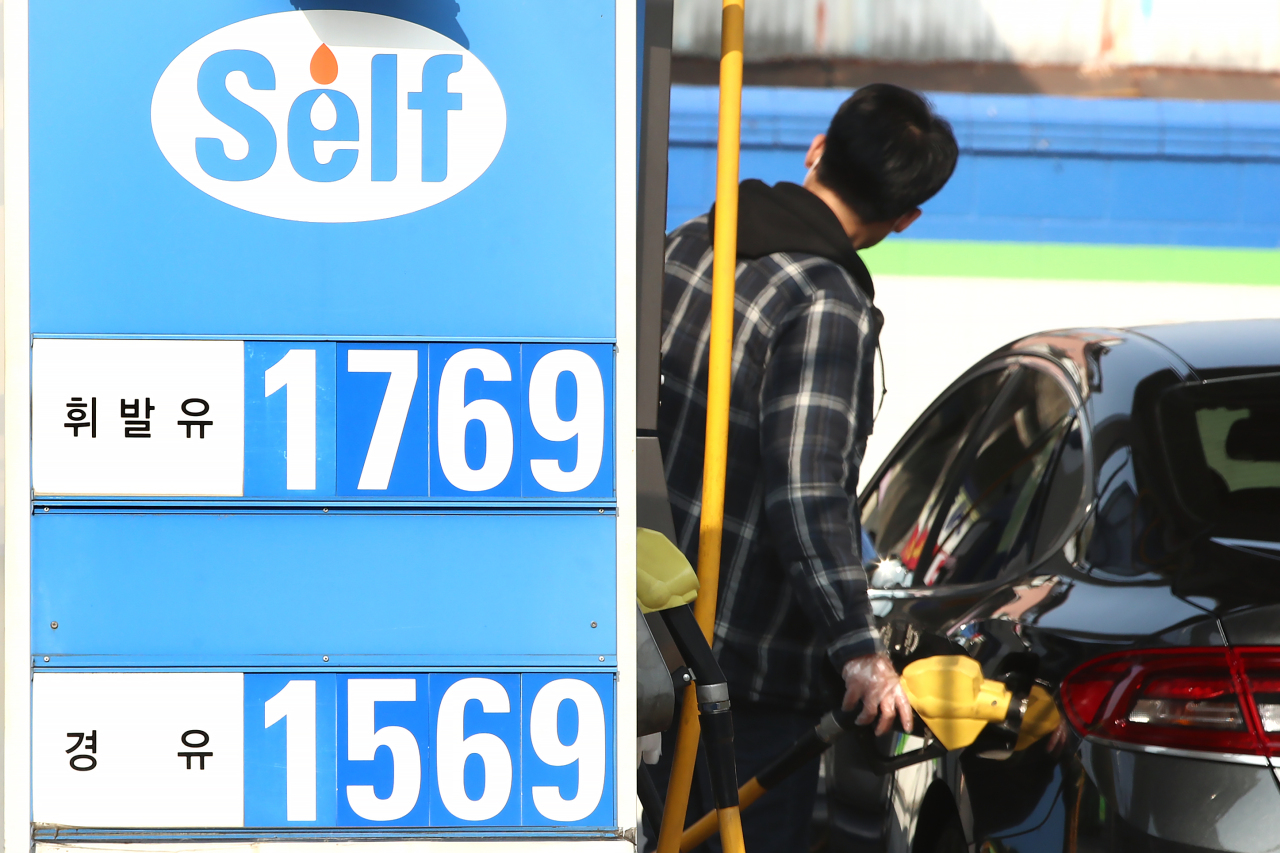 |
This photo, taken Sunday, shows gas prices at a filling station in Seoul. (Yonhap) |
South Korea's consumer prices are estimated to have grown more than 3 percent for the first time in nearly 10 years in October due to last year's low base and surging oil prices, a poll showed Monday.
The country's consumer inflation is projected to have risen 3.2 percent in October from a year earlier, accelerating from a 2.5 percent on-year gain in September, according to the poll on six brokerage houses.
If the forecast is right, the inflation rate will stay in the 3 percent range for the first time since February 2012.
Experts said the pickup in inflation is mainly attributable to the base effect from last year's one-off state subsidies for mobile phone bills, and rising oil prices.
Consumer prices inched up 0.1 percent on-year in October 2020 as the government provided 20,000 won ($17) each to people in specific age groups to help them cover mobile phone fees amid the pandemic.
"Last year's low base, a hike in energy costs and a surge in prices of farm products probably raised the inflation growth rate for October," Park Sang-hyun, an economist at Hi Investment & Securities, said.
Jun Kyu-yun, an economist at Hana Financial Investment, said the inflation rate is expected to stay in the 3 percent range in the fourth quarter.
South Korea's consumer prices grew more than 2 percent -- the central bank's mid-term inflation target -- for the sixth straight month in September due largely to high prices of farm and oil products.
Oil prices surged to a three-year high last month amid the global economic recovery from the COVID-19 pandemic.
Prices of Dubai crude, South Korea's benchmark, hit a yearly high of $84.37 per barrel on Oct. 25, up from an average of $72.63 in September.
The government decided last week to cut fuel taxes by a record 20 percent from Nov. 12 for about six months in a bid to ease upward pressure on inflation.
The finance ministry said the tax cut is expected to help drive down the inflation rate by a maximum of 0.33 percentage point.
In October, the Bank of Korea (BOK) hinted at an additional rate hike for November to curb inflation and household debt. The central bank froze the policy rate at 0.75 percent this month after raising it by a quarter percentage point in August.
BOK Gov. Lee Ju-yeol said the 2021 growth rate of consumer prices is likely to exceed the central bank's forecast of 2.1 percent.
To curb inflation, the government plans to freeze natural gas bills for the next two months and will seek to leave public utility charges unchanged until the end of this year. (Yonhap)







![[Robert Fouser] Accepting migrants in South Korea](http://res.heraldm.com/phpwas/restmb_idxmake.php?idx=644&simg=/content/image/2024/10/31/20241031050896_0.jpg)
